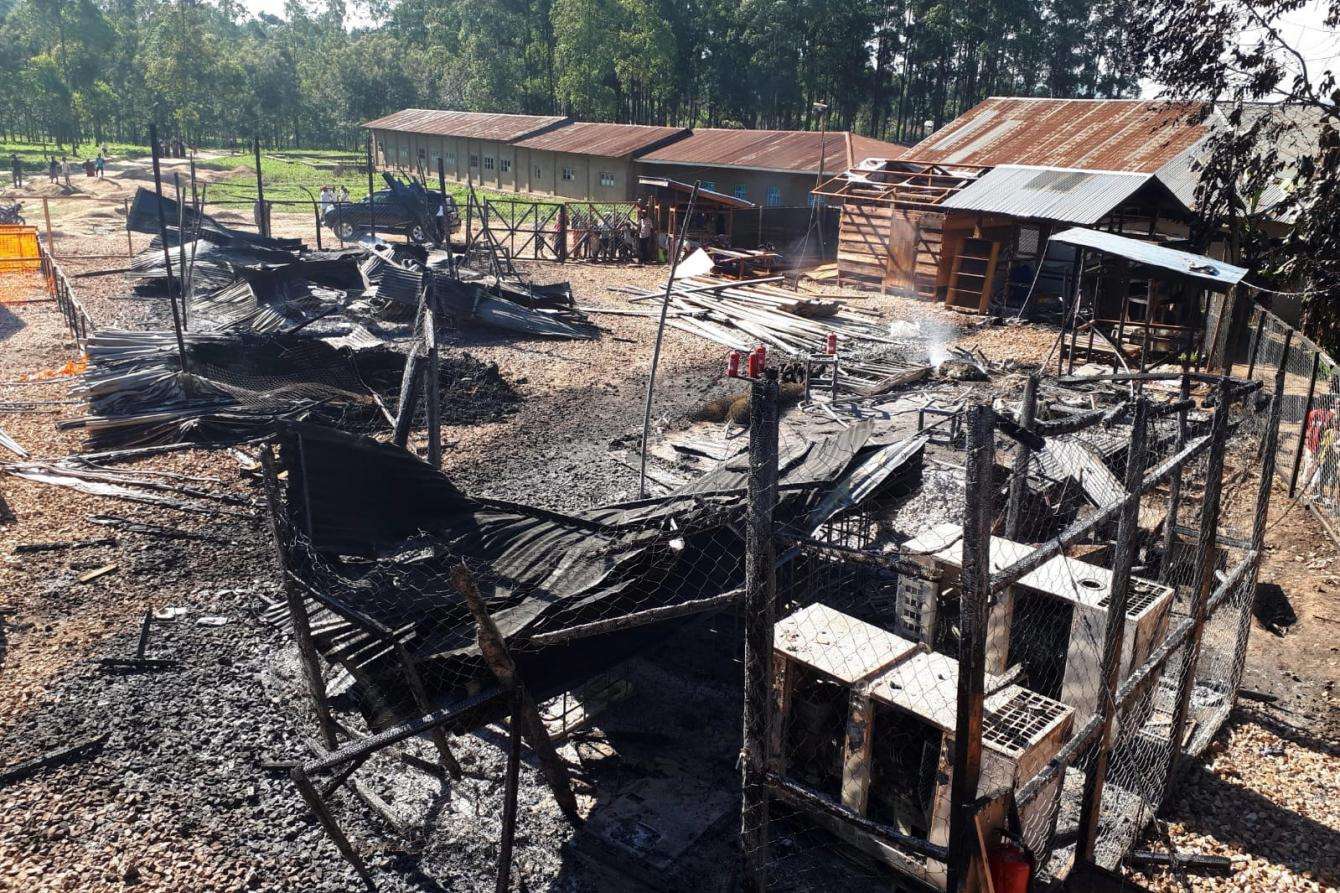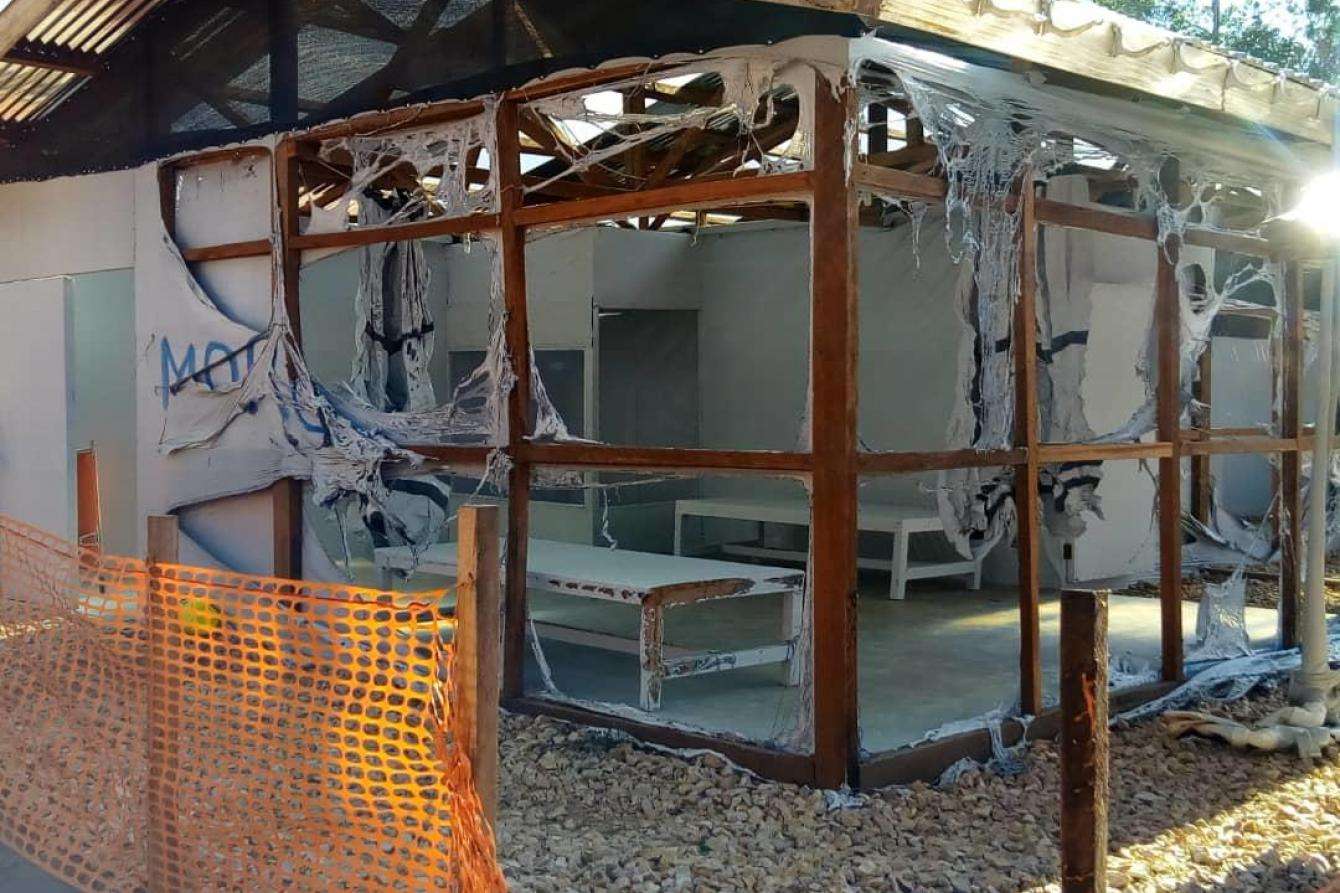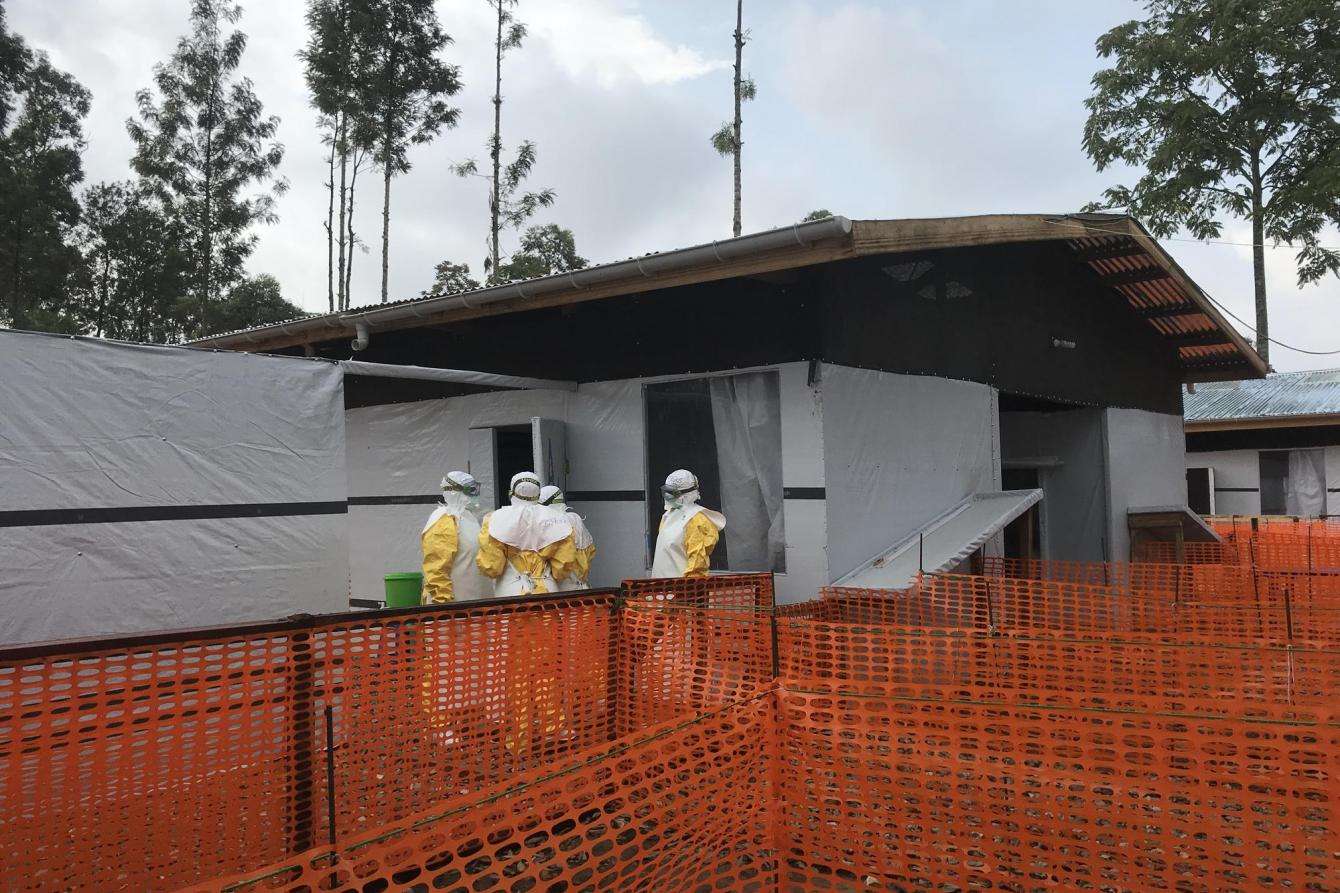Without trust of local communities, Ebola response risks failure
NEW YORK/KATWA, FEBRUARY 26, 2019—All activities at an Ebola Treatment Center in Katwa, Democratic Republic of Congo (DRC), have been suspended following a violent attack this past weekend in which the facility was partially burned down, said the international medical humanitarian organization Doctors Without Borders/Médecins Sans Frontières (MSF) on Tuesday. Suspension of activities at the 70-bed facility will severely limit access to essential health services at a time when the region continues to battle an Ebola outbreak.
At 10 p.m. on February 24, unidentified assailants began throwing stones at the MSF-managed Ebola Treatment Center in Katwa, in DRC’s North Kivu province. They then set parts of the structure on fire, destroying medical wards and equipment. The brother of a patient died while reportedly trying to escape the scene, though the exact circumstances of his death are still unclear. All personnel were evacuated from the center. Six patients classified as suspect and four as confirmed cases were transferred to other facilities.

“This attack was traumatic for patients, their relatives, and staff present inside the center at the time,” said Emmanuel Massart, MSF’s emergency coordinator in Katwa. “This attack has crippled our ability to respond to what is now the epicenter of the outbreak.”

More than six months after the beginning of the Ebola outbreak in North Kivu and Ituri, the epidemic is not under control with more than 870 confirmed patients and more than 540 deaths. After some successes in stopping transmission in the initial epicenters of Mangina and Beni—and some ancillary locations such as Tchomia, Mutwanga, and Masereka—the epidemic has spread from four to 19 health zones.
Previous Ebola outbreaks have demonstrated the importance of gaining the acceptance of the community. Without the communities’ trust, the sick and dead remain hidden and health workers risk being threatened or assailed.
People continue to die in the community as health teams aren’t able to gain trust to access all areas, including many that already have limited access to even basic health care since they're affected by conflict. Additionally, people could be exposed to the virus in health centers, which can deter them from seeking treatment.
“Although the reasons behind the attack are unclear and such violence is unacceptable, what we know is that the actors of the Ebola response—MSF included—have failed to gain the trust of a significant part of the population,” said Meinie Nicolai, MSF’s general director currently in North Kivu. “All those involved in this response must change their approach and truly engage with the grievances and fears of the communities.”

Since December, when MSF began working in Katwa as part of the Ebola response, 602 patients had been admitted to the center, of which 49 were confirmed cases. MSF activities in the Ebola response continue in Butembo, Bunia, Bwena Sura, Kayna, and Biena.




